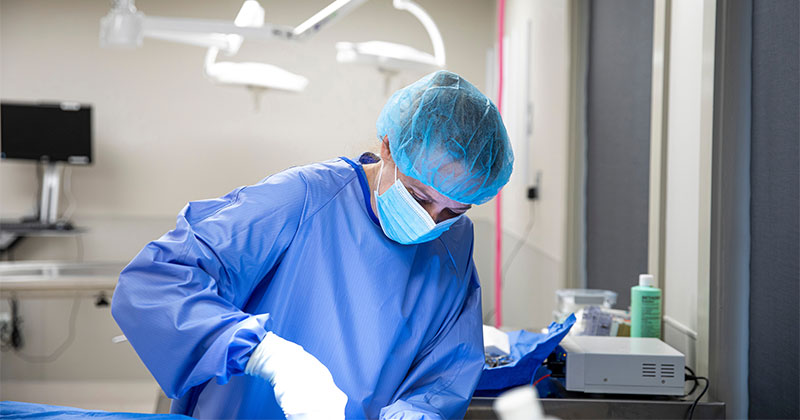
There may be times when your pet requires surgery, whether it's a routine procedure or something more advanced. You can take comfort in knowing that our experienced veterinarians are dedicated to getting your pet on the path to recovery. Our hospitals perform surgeries daily, including emergency procedures when necessary.
All surgeries are conducted under anesthesia, and for your pet's health and safety, we require pre-anesthetic blood work to detect any underlying conditions. With your pet’s comfort and well-being as our priority, we implement pain management protocols before, during, and after surgery to ensure a smooth recovery.
Pet Surgeries Performed at All Care Veterinary Network include:
We understand that it can be stressful when your pet needs surgery. Our veterinarians will walk you through every step of the procedure and answer all your questions.
A hospital team member will contact you before your scheduled surgery appointment to confirm the time you will be dropping your pet off and to answer any questions you might have.
It is important that surgery is done on an empty stomach to reduce the risk of vomiting during and after anesthesia. You will need to withhold food for 10 hours before surgery. Water can be left down for the pet.
For many surgeries, we use absorbable sutures underneath the skin. These will dissolve on their own, and do not need to be removed later. Some surgeries, especially lump removals, do require skin stitches but are typically dependent on the size and location of the lump. With either type of suture, you will need to keep an eye on the incision for swelling or discharge. Most dogs and cats do not lick excessively or chew at the incision, but we do recommend an e-collar for all surgeries to prevent infections.
If there are skin sutures, these will need to be removed 14 days after surgery. You will also need to limit your pet’s activity level for 5-7 days for most routine surgical procedures. No baths are allowed for the first 14 days after surgery.
Anything that causes pain in people can be expected to cause pain in animals. Pets may not show the same symptoms of pain as people do; they usually don’t whine or cry, but you can be sure they feel it. Pain medications needed will depend on the surgery performed.
While your pet is under anesthesia, it is the ideal time to take care of other minor services such as teeth cleaning/polish, ear cleaning, or implanting a microchip. Please request additional services before your pet’s surgery so we can work up an estimate and allow for extra surgical time.
If you’d like to contact us, call us at (770) 526-9678 or request an appointment online.
Follow us on social media:




